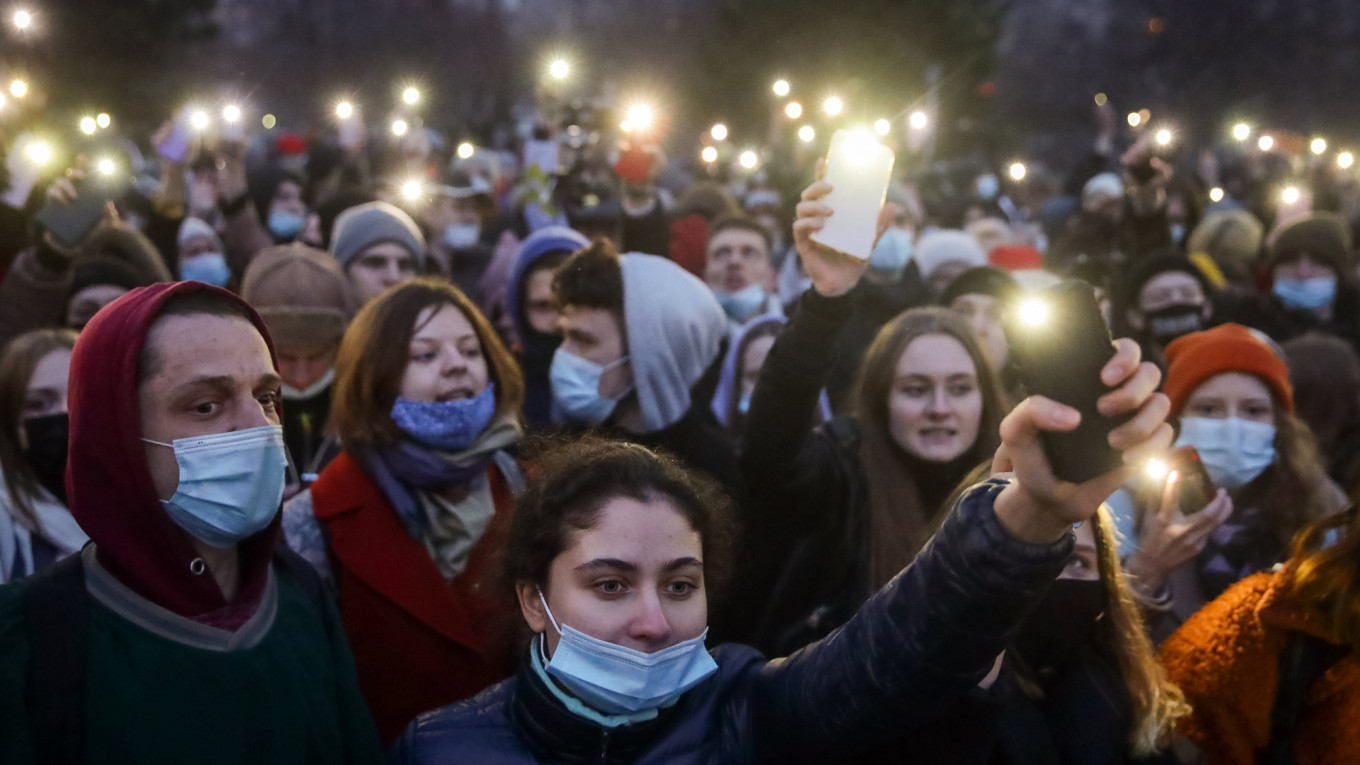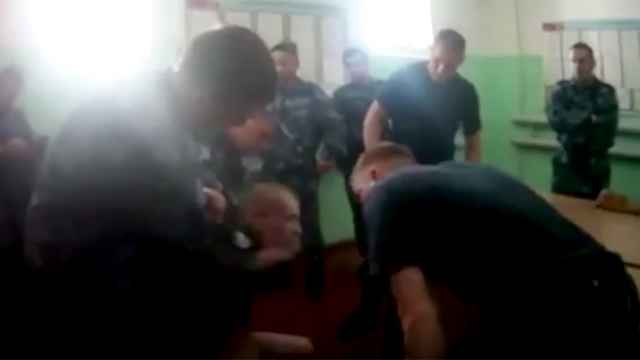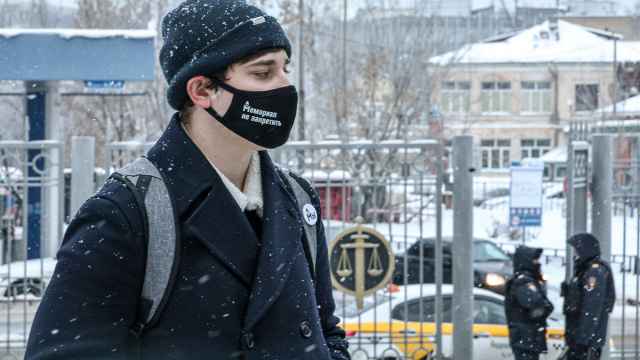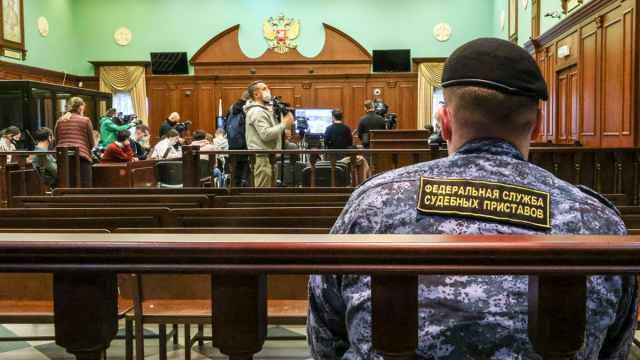Russia has blocked the website of a rights monitor tracking political persecution, saying it promoted terrorism and extremism, amid an unprecedented official crackdown on dissent.
The move comes in a year that has seen the opposition dismantled and scores of independent media and rights groups branded as "foreign agents" or banned outright.
OVD-Info, which tracks opposition protests and also provides legal support to victims of political persecution, said the Roskomnadzor media regulator had blocked its website earlier this week.
"At the moment, we have not received a notice and do not know the reason for being blocked," the group tweeted.
A Roskomnadzor registry of blocked websites showed that a Moscow region court had issued a ruling dated December 20 to "limit" access to the site.
The website was not accessible by AFP journalists in Russia on Saturday.
Later Saturday, Russian news agencies cited Roskomnadzor as confirming that it had blocked OVD-Info's website because the Moscow region court had ruled that the group's activities were aimed at promoting "terrorism and extremism" in Russia.
Roskomnadzor added that it had sent "demands" to social media networks to "delete the organization's accounts."
"We consider this as a continuation of the state offensive against civil society," said OVD-Info's co-founder Grigory Okhotin on Telegram, rejecting the allegations and vowing that OVD-Info would continue its work, despite the blockage.
The pressure on social media companies to remove OVD-Info from their platforms comes after a Moscow court on Friday slapped Google with an unprecedented fine of nearly $100 million, while Meta (formerly Facebook) received a fine of $27 million for failing to remove banned content.
Roskomnadzor said the U.S. companies had "ignored multiple demands" to remove materials that incite religious hatred and promote views of "extremist and terrorist organizations," among other violations.
'Political pressure'
OVD-Info, which was founded a decade ago during the first mass protests against President Vladimir Putin's rule in December 2011, had been labelled a "foreign agent" in September.
Carrying negative Stalin-era connotations, entities or individuals identified as "foreign agents" must accompany all their texts, videos and social media posts with a disclaimer.
The label is a deterrent for advertisers and makes it difficult for organizations and journalists to function.
OVD-Info, which led a campaign against the legislation, denounced the move as "an act of political pressure."
The "foreign agent" label has been used in particular against journalists, with the justice ministry's list of individuals and news outlets ballooning from 17 at the start of the year to 103 as of Saturday.
Critics point to a decision by Putin's top domestic opponent Alexei Navalny to return to Russia in January as triggering the historic clampdown.
The 45-year-old opposition leader had been in Germany recovering from a near-fatal poisoning attack he blames on Putin — a claim the Kremlin has repeatedly denied.
Navalny was jailed soon after his return on old fraud charges and has since seen his organizations banned as "extremist" and all of his top allies flee the country.
Asked about the crackdown on Thursday, Putin said that it was aimed at curbing foreign influence.
"I remind you of what our adversaries have been saying for centuries: Russia cannot be defeated, it can only be destroyed from within," he told a press conference.
He added that it was domestic dissent that brought about the collapse of the Soviet Union 30 years ago this month.
Also this month, Russia's Supreme Court is considering whether to shut the country's most prominent rights organization Memorial, which works with OVD-Info.
Prosecutors accuse the rights group of breaching "foreign agent" legislation and justifying terrorism by releasing lists of political prisoners that include banned figures like Navalny.
A Message from The Moscow Times:
Dear readers,
We are facing unprecedented challenges. Russia's Prosecutor General's Office has designated The Moscow Times as an "undesirable" organization, criminalizing our work and putting our staff at risk of prosecution. This follows our earlier unjust labeling as a "foreign agent."
These actions are direct attempts to silence independent journalism in Russia. The authorities claim our work "discredits the decisions of the Russian leadership." We see things differently: we strive to provide accurate, unbiased reporting on Russia.
We, the journalists of The Moscow Times, refuse to be silenced. But to continue our work, we need your help.
Your support, no matter how small, makes a world of difference. If you can, please support us monthly starting from just $2. It's quick to set up, and every contribution makes a significant impact.
By supporting The Moscow Times, you're defending open, independent journalism in the face of repression. Thank you for standing with us.
Remind me later.






